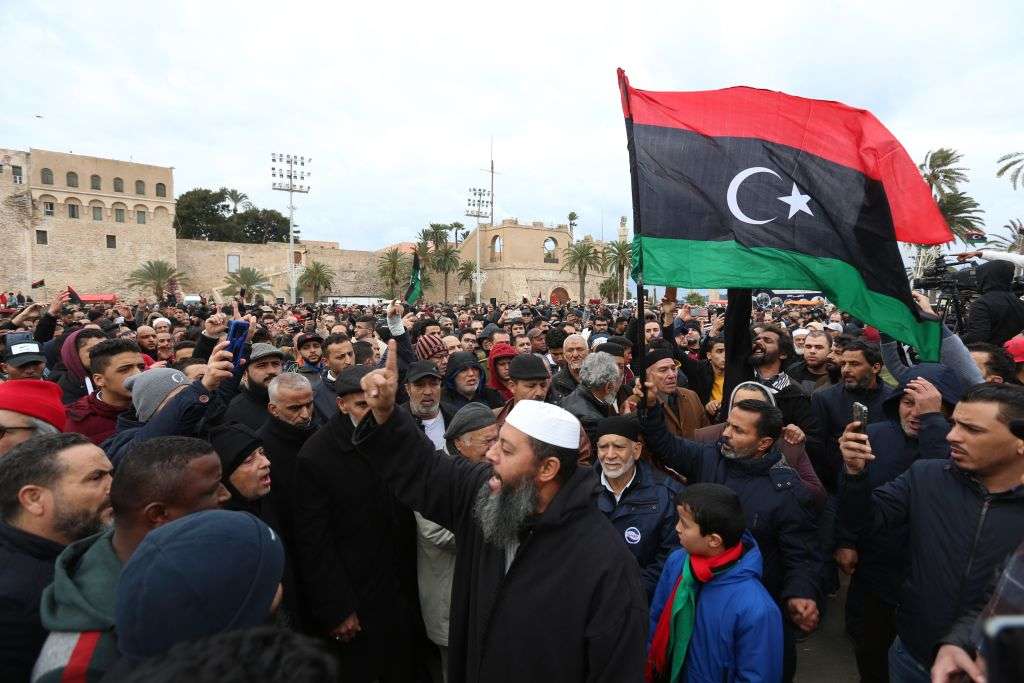French President Emmanuel Macron will organize an international conference on Libya Friday in Paris to give a final "impulse" to the December 24 elections, which remain in doubt against the backdrop of renewed tension between the two competing camps.
[caption id="attachment_249427" align="aligncenter" width="600"]
Libyan Prime Minister (PM) Abdul Hamid Dbeibah[/caption]
The Elysee Palace, in its presentation of the conference on Tuesday, pointed out that "the elections are at hand. There is a strong movement working in Libya until it is held. The stability of the country hangs on it."
The French presidency stressed, "But the 'disruptors' (those who want to disrupt the current dynamic) are waiting for it, trying to derail the process."
Paris affirmed that it is therefore necessary to "make the electoral process irreversible and irreversible and to ensure respect for the outcome of the elections", before the upcoming presidential elections on December 24 and the legislative elections that are scheduled for a month after that date.
These elections are the result of an arduous political process that took place under the auspices of the United Nations. It shall end the chaos that Libya since the fall of Muammar Gaddafi’s regime in 2011, and to put an end to the pisions and conflicts between the camps in the west and east of the country.
[caption id="attachment_213863" align="aligncenter" width="1024"] Libyan people uprising in 2011[/caption]
Libyan people uprising in 2011[/caption]
However, the holding of the elections seems inconclusive in light of an unstable political atmosphere and differences that still exist, especially over the election schedule, within a security framework that is still fragile.
The conference will be co-chaired by France, Germany, Italy, the United Nations, and Libya, as emphasized by the Elysee, who is keen to show the international dimension of this event.
The Elysee Palace announced that officials from most of the countries involved in the Libyan crisis or its solution, including US Vice President Kamala Harris and Egyptian President Abdel Fattah El Sisi, will attend the conference without giving a detailed list.
As for Russia, it will be represented by its Foreign Minister, Sergey Lavrov, as Moscow has made clear.
It did not specify the level of representation of Turkey, which supports Tripoli in the West and whose relations with Paris have been strained.
Also, the level of representation of Libya is not yet known, as Prime Minister Abdul Hamid Mohammed Dbeibeh has not yet confirmed his arrival. On the other hand, we are still awaiting the arrival of the President of the Presidential Council, Mohamed al-Menfi, to Paris.
"We have sent two invitations to Dbeibeh and Menfi. So far, there is no problem," the Elysee Palace said.
Tunisia, Niger, and Chad will also be represented, three neighboring countries affected by the repercussions of the Libyan crisis, especially the smuggling of weapons and mercenaries.
On the other hand, Algeria, whose relations with France are experiencing a diplomatic crisis due to the memory of colonialism, did not confirm its participation.
The French presidency said that "Algeria is a key player in the region, and the President of the Republic wants the participation of Algerian President (Abdelaziz) Tebboune," stressing that Macron "regrets the controversy and misunderstanding" that his statements about the Algerian nation aroused.
But Paris, which wants the conference to adopt the "Libyan plan for the departure of foreign forces and mercenaries," realizes that the bet in this area remains "difficult."












